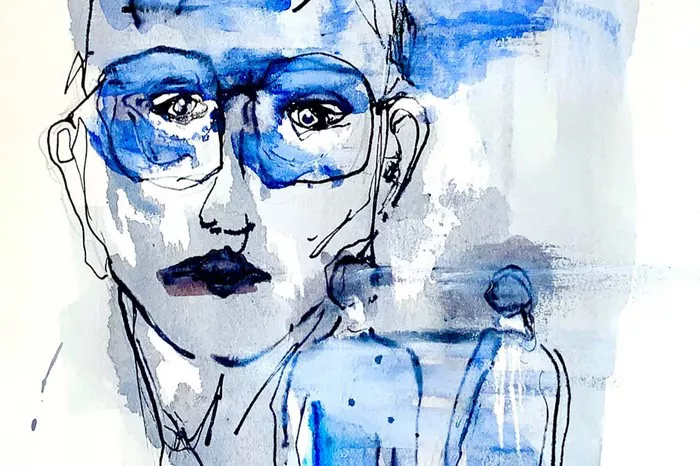Bill Hall, 71, has been fighting for his life for 38 years, but now, he’s feeling exhausted. Hall contracted HIV in 1986, and since then, he has battled multiple serious health conditions, including depression, heart disease, diabetes, non-Hodgkin lymphoma, kidney cancer, and prostate cancer. Over the past year alone, Hall has been hospitalized five times due to dangerous infections and life-threatening internal bleeding. But these medical challenges represent only part of the struggle he’s faced.
Hall, a gay man, was born into the Tlingit tribe in a small Alaskan fishing village. When he was 9 years old, he was separated from his family and sent to a government-run boarding school. There, he endured years of bullying and sexual abuse that “killed my spirit,” he says. This trauma has led to difficulties in forming intimate relationships. He contracted HIV through anonymous sex at bathhouses. Hall now lives alone in Seattle, having been on his own for most of his adult life.
“It’s really difficult to maintain a positive attitude when you’re going through so much,” says Hall, who now works with Native American community organizations. “You become mentally exhausted.”
Unfortunately, Hall’s experience is not unique among older LGBTQ+ adults, many of whom, like Hall, are navigating life on their own. According to the National Resource Center on LGBTQ+ Aging, of the 3 million Americans over the age of 50 who identify as gay, bisexual, or transgender, about twice as many are single and living alone compared to their heterosexual counterparts.
This segment of the population is growing rapidly, with projections indicating that by 2030, the number of LGBTQ+ seniors will double. AARP research suggests that many of these individuals won’t have partners or children to care for them, making their aging process more challenging.
Older LGBTQ+ adults face numerous hurdles, including higher-than-average rates of anxiety, depression, chronic stress, and illnesses like heart disease. Research has also shown that higher rates of smoking, alcohol consumption, and drug use among this population further contribute to poor health outcomes.
These challenges must be understood in the context of the history faced by LGBTQ+ individuals, particularly those who grew up during a time when same-sex relations were outlawed and homosexuality was classified as a psychiatric disorder by the American Psychiatric Association. Many older LGBTQ+ adults were rejected by their families and communities when they came out and later witnessed the horrors of the AIDS crisis.
“Dozens of people were dying every day,” recalls Hall. “Your life becomes going to support groups, visiting friends in the hospital, and attending funerals.”
It’s no surprise, then, that LGBTQ+ seniors often experience higher levels of social isolation compared to their peers. “There was too much grief, too much anger, too much trauma — too many people were dying,” explains Vincent Crisostomo, director of aging services at the San Francisco AIDS Foundation. “It was just too much to bear.”
In a 2023 AARP survey of 2,200 LGBTQ+ adults aged 45 and older, 48% reported feeling isolated, and 45% said they lacked companionship. Nearly 80% expressed concerns about having adequate social support as they age.
The challenge of embracing aging is particularly difficult for LGBTQ+ seniors who have survived long-term illnesses such as HIV. In the U.S., about half of the 1.2 million people living with HIV are over the age of 50, and this number is expected to increase to 70% by 2030.
Christopher Christensen, 72, has been HIV-positive since May 1981 and is actively involved with local organizations that serve long-term HIV survivors. He shares that many of these individuals never expected to grow old because they anticipated an early death due to their HIV status.
Jeff Berry, executive director of the Reunion Project, which serves long-term HIV survivors, explains that many survivors are now dealing with worsening health issues and the loss of peers. “It’s triggering this post-traumatic stress that’s been underlying for many, many years,” Berry notes. “Yes, it’s part of getting older. But it’s very, very hard.”
The absence of family or close relationships, combined with the difficulty of finding supportive services that cater to both LGBTQ+ and aging needs, intensifies these challenges. Christina DaCosta, chief experience officer at SAGE, the largest and oldest organization for older LGBTQ+ adults, emphasizes the importance of both LGBTQ- and age-friendly services to ease the burdens faced by this community.
For individuals like Diedra Nottingham, a 74-year-old gay woman living alone in New York City, the weight of past trauma is compounded by the fear of isolation. Nottingham’s experience growing up — being kicked out of her home at age 14 and later losing several partners — has left deep psychological scars. She acknowledges feeling loneliness, despite benefiting from therapy and weekly visits from a volunteer friendly visitor.
Similarly, Donald Bell, a 74-year-old gay Black man who lives alone in Chicago, has a history of both personal loss and the financial burdens of caring for elderly parents. Despite facing numerous health challenges like hypertension, diabetes, and heart disease, Bell has developed a resilient perspective on life. “The fact that I am a Black man who has lived to 74… that I have the sanctity of my own life and my own person is a victory,” Bell reflects.
Bell’s attitude exemplifies the way many LGBTQ+ seniors find strength in navigating the complexity of aging, even as they continue to confront the long-lasting effects of trauma from their past.
As LGBTQ+ seniors age, their challenges are multifaceted: physical health issues, mental health struggles, social isolation, and a history of traumatic experiences. Understanding and addressing these complexities will be essential to supporting this growing and often overlooked segment of the aging population.
You Might Be Interested In:
-
Breakthrough Study Reveals Mechanism for Cognitive Improvement in Dementia Using Cannabinoid Drug
-
Genetic Risk for Dementia Influences Family Planning and Parenting Decisions, Study Reveals
-
High Red Meat Consumption Linked to Increased Dementia Risk, Study Finds

